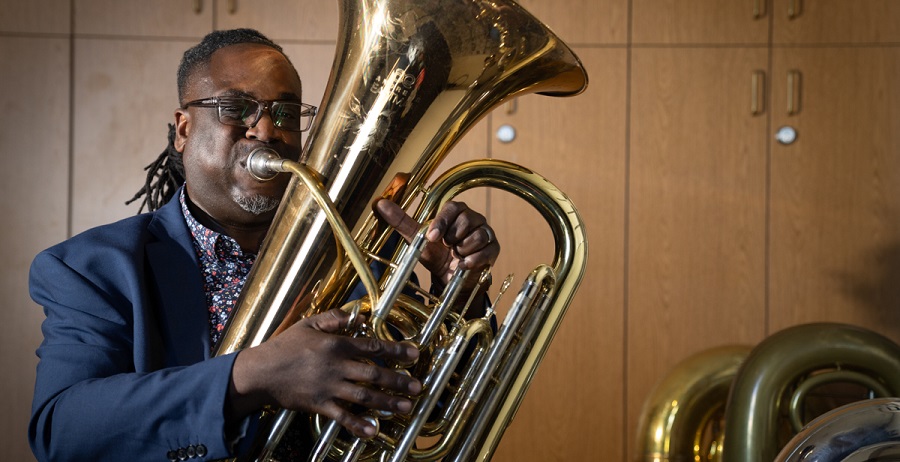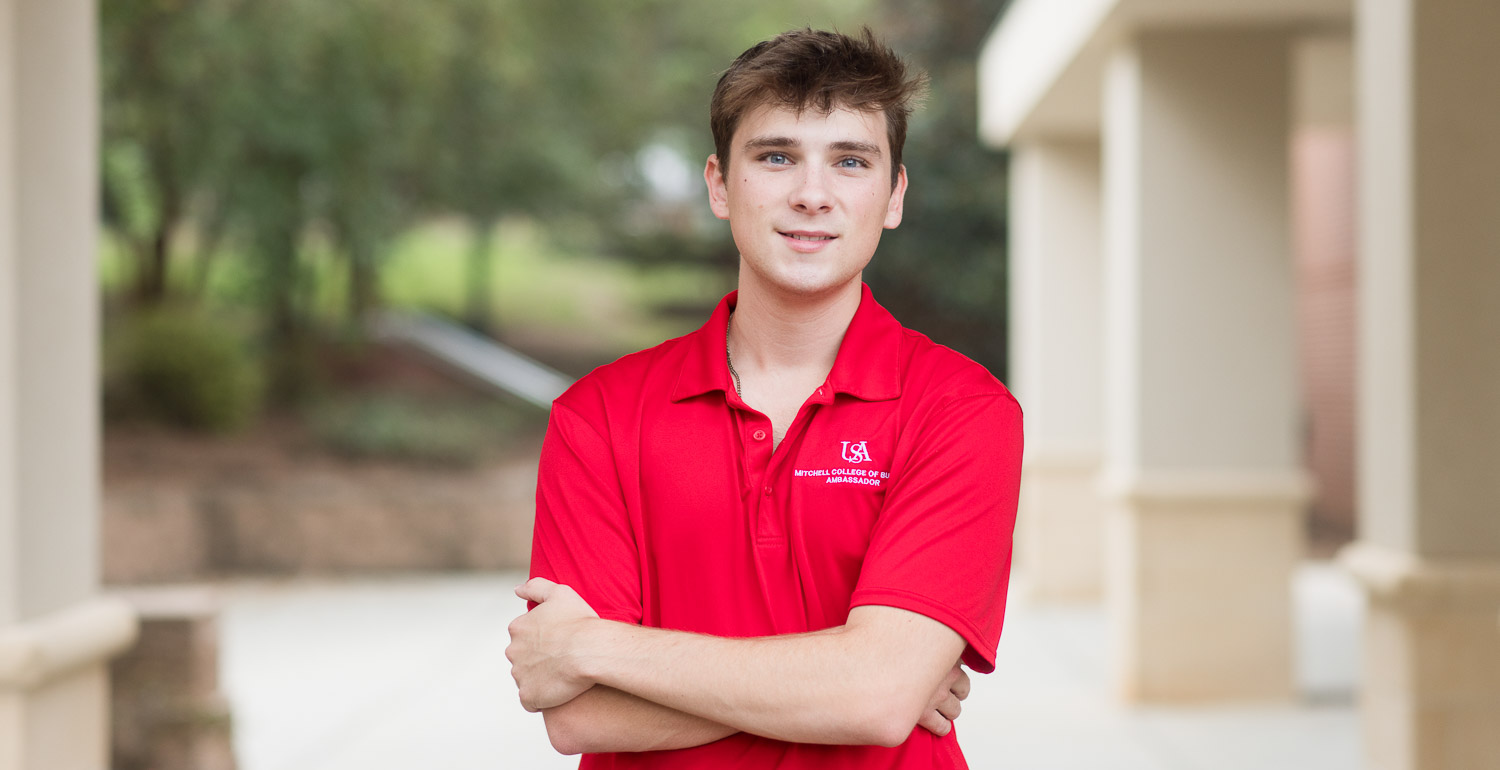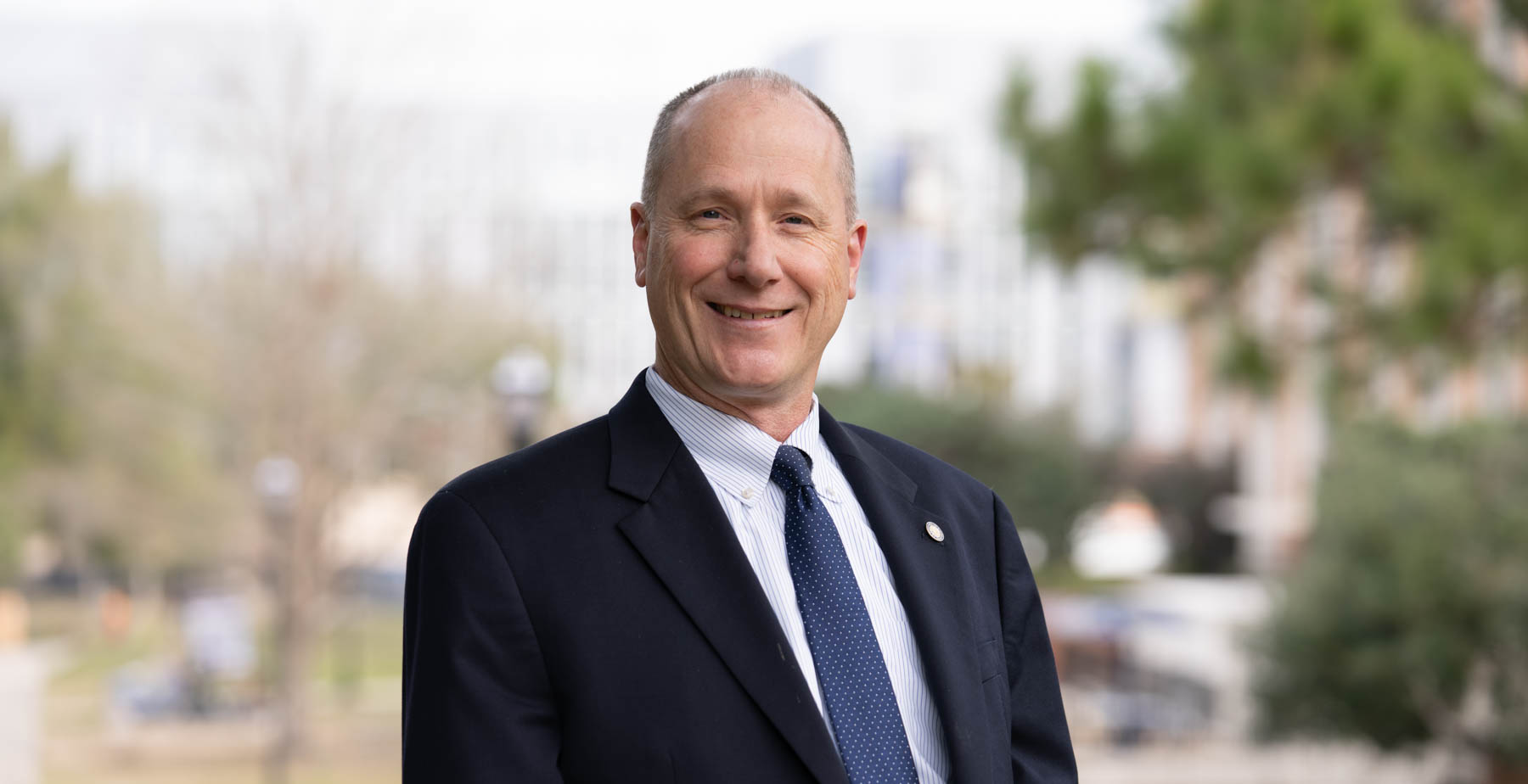South Tubist Gets Grammy Consideration
Posted on February 1, 2024

Dr. Clayton Maddox grew up in South Bay, Florida, a small city in the sugarcane belt near Lake Okeechobee, where football was king and the arts were an afterthought.
“Classical music was not a thing,” he said, laughing.
His mother, though, was a teacher’s aide who wanted her only child to have opportunities outside the struggling agricultural community where he grew up. Joann Maddox paid for his piano lessons in nearby Clewiston. And in the fourth grade, he discovered the career path that led him to classical tuba and his position as assistant professor of music at the University of South Alabama.
He’ll never forget the day everything changed. When a visiting band performed near South Bay, the band leader asked if any of the elementary students in the audience were musicians. Nobody moved. Finally, Maddox raised his hand, was called on stage, and played Beethoven’s “Fur Elise.”
Well.
“The look on my teacher’s face was complete shock,” Maddox said, laughing again. “Her attitude toward me completely changed. She would brag about me to the other teachers. That’s when I thought, if I can play music, people will like me. From that moment, I never thought about doing anything else.”
At Glades Central High School, he took up the tuba and never looked back. At Florida A&M University, he played classical music and helped lead the famous Marching 100. He had to leave college, though, to care for his dying mother.
He sold his tuba to pay for her funeral, but kept playing on borrowed instruments.
“Music always gave me peace,” he said. “It always inspired me.”
Maddox went back to school, starting with a scholarship to Florida State College in Jacksonville, and earned degrees from the University of Alabama and the University of Memphis. He also taught at Arkansas Tech University and Henderson State University.
Three years ago, Maddox won a fellowship and earned his Doctor of Musical Arts degree from Louisiana State University.
Now he teaches at South, where he is assistant director of bands, and leads an international ensemble called the Backburner Tuba and Euphonium Collective. (A euphonium is slightly smaller than a tuba and sounds almost like a trombone.) He’s recorded a solo album — working title, “Forgotten Voices” — of music by African American composers.
Maddox, 43, also performs with a quintet, the Alias Brass Company, which received consideration for this year’s Grammy Awards.
“That was exciting,” he said. “We found out after we released the album Prism by Big Round Records. We never thought we would win, and we weren’t a finalist for small chamber groups, but it was good to be recognized.”
World-Class Tuba Player
Last year, Dr. Will Petersen, director of bands at South, led the search committee that recommended Maddox for a position as artist and teacher. Petersen has been a tuba player and instructor, himself, so he knew talent when he heard it.
“We were looking for a world-class tuba player, and a world-class tuba and euphonium teacher, and with Clay we got that,” Petersen said. “He came on campus and we immediately hit it off. We had a great time and ended up playing some duets. Watching him teach the students that I was teaching, as part of his interview process, it was obvious he was going to be the choice.
“He’s been fantastic for the students. You can tell he has an incredible level of musicianship, and he’s incredibly sensitive. He’s a fine teacher and he’s been doing a great job with the band, so it’s been a grand slam all around.”
Maddox has been active in the International Tuba Euphonium Association. One of his goals is to recruit more women and minorities to play these instruments.
Dr. Ryan Robinson, a tuba professor at Oklahoma State University, has known Maddox for more than two decades.
“Clay and I go pretty far back,” he said. “We first met as college students at the big Falcone Festival in Michigan, and we were both from Florida. It was a pretty competitive environment, but I think we both remembered each other as nice human beings.”
Over the years, they saw each other at music conferences. Then Maddox founded the Backburner Collective.
“I thought it was a really cool idea, and I wanted to be a part of it,” Robinson said. “People wouldn’t be playing in that group if it wasn’t a good environment. Clay walks that line between leader and colleague really well.
“We recorded one song as a quartet and it was really challenging. We would talk it out, you know. Should we do it like this? Why don’t you try it like that? For some people, this would be awkward, or uncomfortable, but not Clay. He just wants it to be good.”
Maddox, for his part, describes himself as a perfectionist. He wants everything to be just so, which is almost impossible, and usually frustrating.
“I’m very hard on myself with recordings,” he said. “I’ve never released a recording that I personally liked. My solo album is at the record company now so they can do all the things I want to do with it, because I’m crazy.”
Tuba Family, Too
Maddox is 6 feet tall and sturdy, which is why friends back home wanted him to play football. These days, his hair is braided and there’s a sprinkle of gray in his beard. On some days, he wears dark blue jeans and light blue sneakers.
He’s a sports fan who roots for the Baltimore Ravens in football and the Los Angeles Lakers in basketball. One of his hobbies is racing remote-control cars around a small track in Mobile.
Other than that, his life is music and the tuba.
Maddox met his wife at a tuba conference. Kimiko Yamada Maddox, who had been a classmate of Petersen’s at Indiana University, was leading a women’s ensemble from Japan.
“She was awesome, she understood me, and we were graduate students together,” he said. “I remember, she told me, ‘I think I’m supposed to be by your side,’ and that was so touching. She’s been my rock, and she helped me start the Backburner Collective.”
Kimiko still plays the euphonium, but her day job is assistant manager of the bookstore at South.
One of his African American tuba idols is Dr. Velvet Brown, a distinguished professor of music at Pennsylvania State University, who’s made several solo and group recordings.
“She’s incredible — I’ve been listening to her since I was 19 or 20 years old,” he said. “When I see her at conferences, I sit down and pick her brain. She’s been an inspiration.”
At South, Maddox enjoys his office in the Laidlaw Performing Arts Center. The room is large enough to have students for lessons, and has a window overlooking University Boulevard. He remains dedicated to his own playing, practicing nearly every day.
“Two hours, minimum, but most times more,” he said. “That’s enough time for me to do my routine, and fundamentals, and go through any music I have to play. I have to kick that up now because I’m going to a Lake Tahoe arts festival.”
Maddox has performed with the Tallahassee Symphony, the Tuscaloosa Symphony Orchestra and the Jacksonville Symphony Orchestra. He’s done recitals in Sapporo, Japan, and played with the Orquesta Sinfonica in Monterrey, Mexico.
In January, Maddox attended a conference in Tampa, Florida, so he made a side trip over to South Bay. His hometown hasn’t changed much. He was surprised that so many people remembered him.
“It’s still a special place,” he said. “I still remember that smell, that sugarcane smell. I’m very proud of where I grew up, and people are proud of me there. Everybody pulls for me.”



